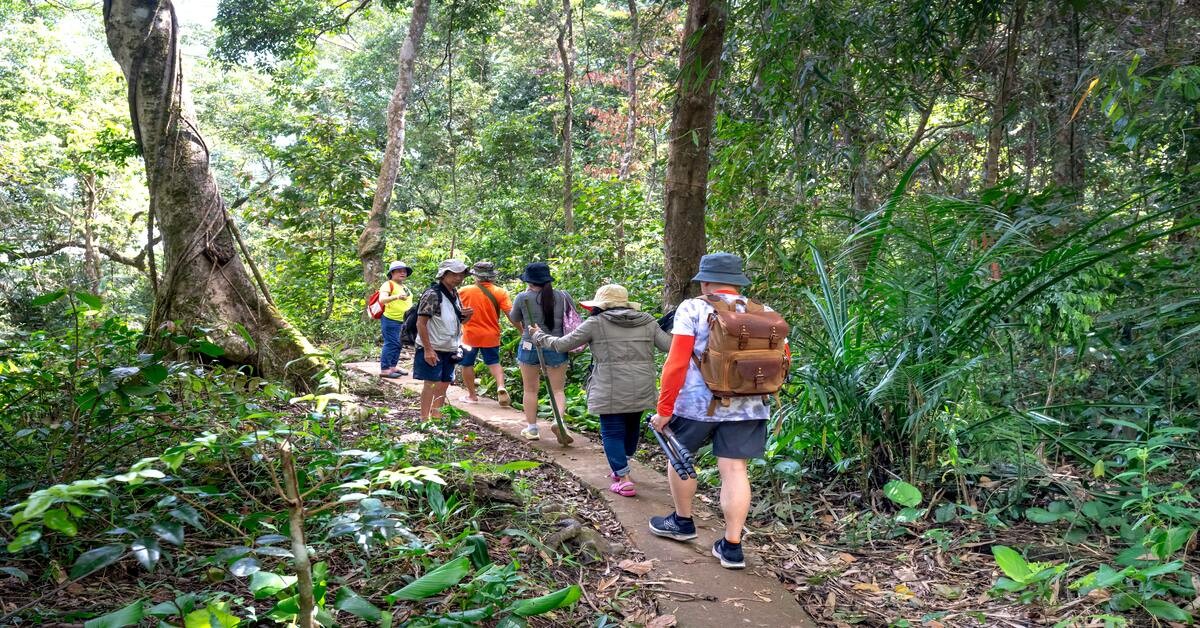As the world becomes increasingly aware of the environmental impact of tourism, a growing movement is embracing a more sustainable and responsible way of exploring the planet – ecotourism. Ecotourism goes beyond typical travel experiences, focusing on conservation, community involvement, and minimizing negative impacts on the environment. In this article, we delve into the concept of ecotourism, its benefits, and how travelers can actively participate in this transformative form of travel for a greener and more sustainable world.
Defining Ecotourism
Ecotourism, as the name suggests, is a form of travel that prioritizes ecological conservation and sustainability. The International Ecotourism Society (TIES) defines ecotourism as “responsible travel to natural areas that conserves the environment, sustains the well-being of the local people, and involves interpretation and education.” Unlike conventional tourism, which may prioritize profit and mass tourism, ecotourism places emphasis on preserving the natural environment, supporting local communities, and promoting cultural awareness.
Key Principles of Ecotourism
To ensure that tourism practices align with the principles of ecotourism, the following key elements are typically embraced:
1. Conservation:
Ecotourism seeks to protect and preserve natural habitats, wildlife, and ecosystems. Activities are designed to minimize negative impacts on the environment, and tourists are encouraged to respect and appreciate nature.
2. Community Involvement:
Local communities are central to the success of ecotourism. Engaging with and empowering local people economically and socially is an essential aspect of sustainable travel.
3. Education and Awareness:
Ecotourism fosters a deeper understanding of environmental and cultural issues. Travelers are encouraged to learn about the places they visit, the importance of conservation, and the ways they can contribute positively to the local communities.
4. Sustainable Practices:
From accommodations to transportation and recreational activities, ecotourism promotes sustainable practices that reduce waste, energy consumption, and carbon footprint.
5. Respect for Culture and Heritage:
Ecotourism values and respects the unique cultures and heritage of the destinations visited. Travelers are encouraged to engage respectfully with local customs and traditions.
The Benefits of Ecotourism
Ecotourism offers a range of benefits, both for the environment and for local communities:
1. Biodiversity Conservation:
By supporting ecotourism initiatives, travelers contribute to the preservation of biodiversity and protection of endangered species and habitats.
2. Economic Empowerment:
Ecotourism generates income for local communities, encouraging sustainable economic growth and reducing dependence on harmful industries.
3. Cultural Exchange:
Ecotourism fosters cultural exchange and understanding, promoting a deeper appreciation for diverse cultures and traditions.
4. Environmental Awareness:
Through educational programs and guided tours, ecotourism enhances environmental awareness, encouraging travelers to become advocates for conservation.
5. Sustainable Development:
By promoting sustainable practices, ecotourism contributes to the long-term well-being of both the environment and the local communities.
How to Embrace Ecotourism as a Traveler
As a traveler, there are several ways you can actively participate in ecotourism and make a positive impact:
1. Choose Responsible Tour Operators:
Research and select tour operators that prioritize sustainability, environmental conservation, and community involvement.
2. Minimize Waste and Energy Use:
Be mindful of your resource consumption during your travels. Opt for eco-friendly accommodations and reduce waste whenever possible.
3. Respect Wildlife and Natural Areas:
Observe wildlife from a safe distance and avoid disturbing their natural behaviors. Adhere to designated trails and protected areas to minimize the impact on delicate ecosystems.
4. Support Local Communities:
Engage with local communities, support local businesses, and learn about their customs and traditions. Your financial contributions can make a significant difference in the lives of local people.
5. Educate Yourself and Others:
Take the time to learn about the environmental and cultural significance of the places you visit. Share your knowledge and experiences with others to raise awareness about ecotourism.
Conclusion
Ecotourism represents a transformative and responsible approach to travel, offering travelers a unique opportunity to explore the world while making a positive impact on the environment and local communities. By embracing the principles of conservation, community involvement, and sustainable practices, ecotourism paves the way for a greener and more sustainable future. As travelers, we have the power to make conscious choices that support and promote ecotourism, fostering a deeper connection with nature, diverse cultures, and the world around us. Together, we can create a more sustainable and mindful approach to travel, leaving a positive legacy for generations to come.




